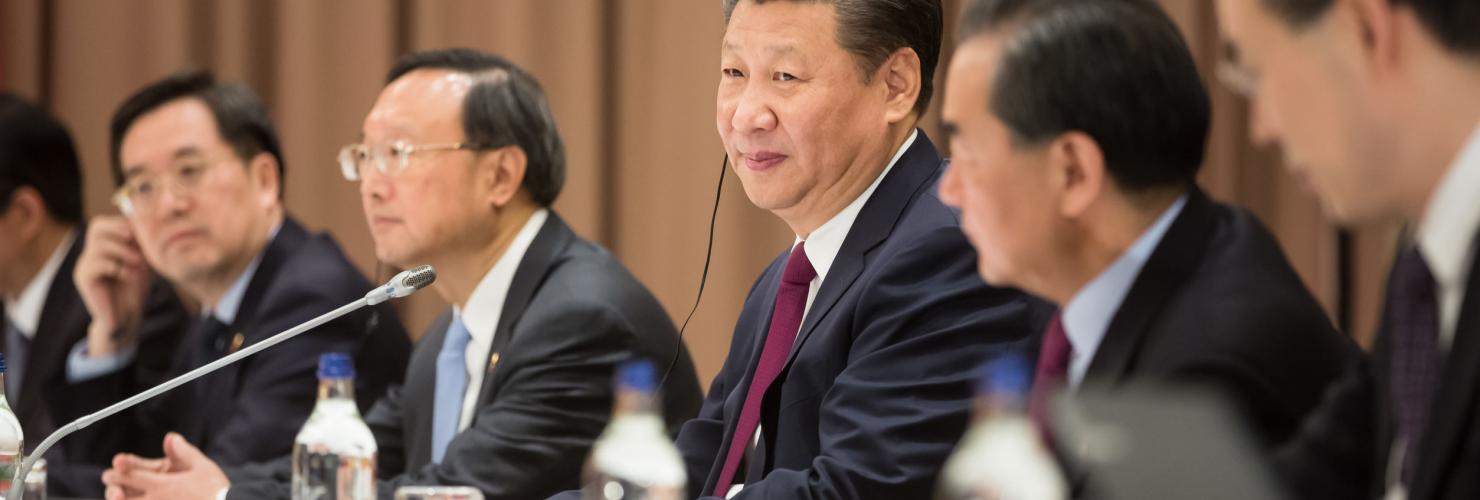

Xi’s one-party state is smothering what made China successful
A wave of ideological indoctrination and discipline is undoing a generation of flexible policy making, says Nis Grünberg. Love for the party and the socialist idea are no replacement.
China’s Communist Party is very ambitious. It wants to shore up one-party rule, expand the country’s welfare systems, modernize the economy, fight corruption, protect the environment and promote an efficient public administration. To reach these goals - some of which contradict each other - Xi Jinping has centralized power in a way last seen under Mao.
Any political activity under the current CCP General Secretary and President of China involves patriotic education alongside the strict political guidance that has always been the party’s domain. Xi equates patriotism with love for the party and the socialist idea. This means Xi's reform agenda not only applies to the political system and the administration, but also to China’s social model. The official ideology is about nothing less than China as a nation and civilization – a campaign that threatens to suffocate the economy and society.
At the end of October, China’s top leaders gathered for the Fourth Plenary Session of the CCP’s 19th Central Committee. They devoted much attention to how party and state apparatuses can govern effectively – how Beijing's political guidelines could be implemented nationwide. Their answer is to focus increasingly on "patriotic education" and disciplining decision-makers in politics as well as business and society. Party members are being encouraged to see their joining the party as a "political birthday" and to become more broadly involved.
Ideology turns successful flexibility into stifling formalism
Beijing is relying on tried-and-tested formulas: centralization and more party control over policy making. But ideology and political education play a much greater role – and as a result over-regimentation is becoming a real danger. Voices from within the ranks have criticized Beijing for being too strict and leaving too little room for experiment and local autonomy. Even the party-state media like the People’s Daily newspaper have carried reports about meetings between provincial and central government officials to better coordinate goals.
China is enormously heterogeneous. Provincial governments face very different challenges and often struggle with narrowly defined universal requirements. Provinces dominated by heavy industry, for example, find it difficult to stimulate innovation in new technologies. Structurally weak regions are still busy expanding of school and hospital systems, while the metropolises of the east coast face challenges like environmental sustainability.
But local answers and experiments are in decline. This is a real problem as enthusiasm for different solutions is considered to have been the driver of China's successful reforms. The meaningless fulfillment of political guidelines is beginning to be openly denounced as dangerous "formalism", not least by Xi himself. But party headquarters does not see this as a warning sign. It counters criticism with even more detailed instructions to exercise control.
Ideology has gained the upper hand. Citizens are being urged to live by the twelve Socialist Core Values and party cadres to study Xi’s ideas. The CCP has drummed together party cadres for training and study under the slogan “Never forget the original ideal and ambition, keep in mind the mission”. As party members become ideological torchbearers, the system generates ever more formalism. Instead of creatively and flexibly solving real problems, decision-makers are (re)producing political documents with ideologically correct inflections.
Systematically, the party is trying to control the private economy. It placed officials in a hundred "key companies" in Hangzhou. They will represent the government, advise on political issues and serve as a link to the public administration in China’s digital center. But the longer-term aim is clear: digital start-ups are on a short leash. They already go to great lengths to "harmonize" content. Bytedance, owner of the TikTok app, employs 35,000 people, of which 10,000 have worked in the censorship department at one time or another.
Xi’s new patriotism is a questionable tool to ensure better rule
There used to be an implied social contract in China – if Beijing can guarantee material progress, the population will not demand a voice. But the Xi regime’s new patriotism requires each individual to actively support the political line. The new "Plan for Patriotic Education" targets the internet-using young. All forms of entertainment are to spread the party's message in targeted ways - ideological mobilization always and everywhere.
These are questionable tools to ensure more efficient and equitable governance. Extreme centralization is already paralyzing the maneuverability that defined the system over past decades. The pressure to fall in line with an ideological and cultural understanding prescribed by Beijing is spreading. In Xinjiang, its dark side is increasingly apparent.
So far, there is no successor to Xi Jinping in sight. The president's two-term limit was lifted in 2018 and Xi could well use this leeway to make the system an even more personalized and centralized one. To argue that China needs a strong government to fight corruption and instability and to assert itself internationally may be correct. But this is no excuse to abolish the qualities that have palpably led to success: flexible policy making and openness to experimentation – and the world. Sadly, the Xi regime is smothering these forces.
This article was first published in German by Zeit Online on December 14, 2019.
